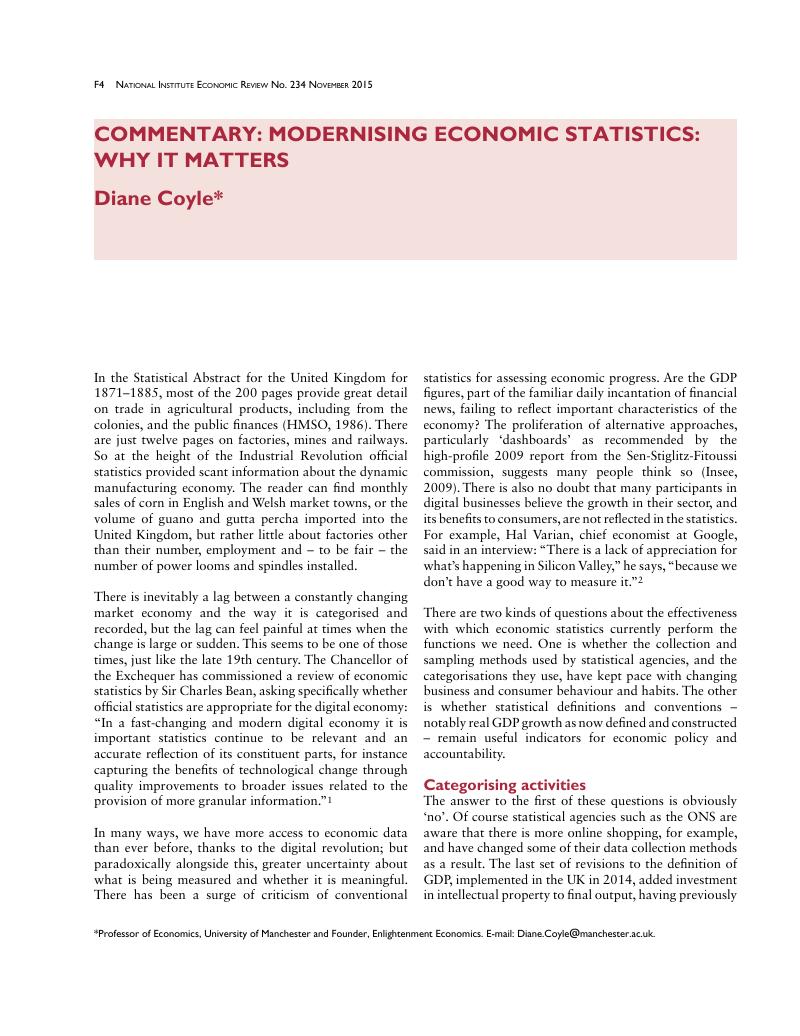Crossref Citations
This article has been cited by the following publications. This list is generated based on data provided by Crossref.
Coyle, Diane
2017.
All to play for in measuring the economy.
Journal of Cultural Economy,
Vol. 10,
Issue. 1,
p.
122.
O’Connor, Sean
Doyle, Eleanor
and
Brosnan, Stephen
2017.
Clustering in Ireland: development cycle considerations.
Regional Studies, Regional Science,
Vol. 4,
Issue. 1,
p.
263.
Coyle, Diane
2017.
The Future of the National Accounts: Statistics and the Democratic Conversation.
Review of Income and Wealth,
Vol. 63,
Issue. s2,
Coyle, Diane
2017.
Do-it-Yourself Digital: The Production Boundary and the Productivity Puzzle.
SSRN Electronic Journal ,
Coyle, Diane
2019.
Measuring Progress: A Review Essay on The Pricing of Progress: Economic Indicators and the Capitalization of American Life by Eli Cook.
Journal of Economic Literature,
Vol. 57,
Issue. 3,
p.
659.
Coyle, Diane
2019.
Do‐it‐yourself Digital: the Production Boundary, the Productivity Puzzle and Economic Welfare.
Economica,
Vol. 86,
Issue. 344,
p.
750.
Satlaeva, Anastassia A.
and
Shmat, Vladimir V.
2021.
SUSTAINABILITY, INCLUSIVENESS AND INNOVATION AS FACTORS OF HARMONIOUS SOCIO-ECONOMIC DEVELOPMENT OF TERRITORIES.
Interexpo GEO-Siberia,
Vol. 3,
Issue. 1,
p.
92.
Bahturidze, Zeinab
Vasilyeva, Natalia
Shahoud, Ziad
and
Pogodin, Sergey
2024.
Proceedings of Topical Issues in International Political Geography (TIPG 2022).
p.
135.



